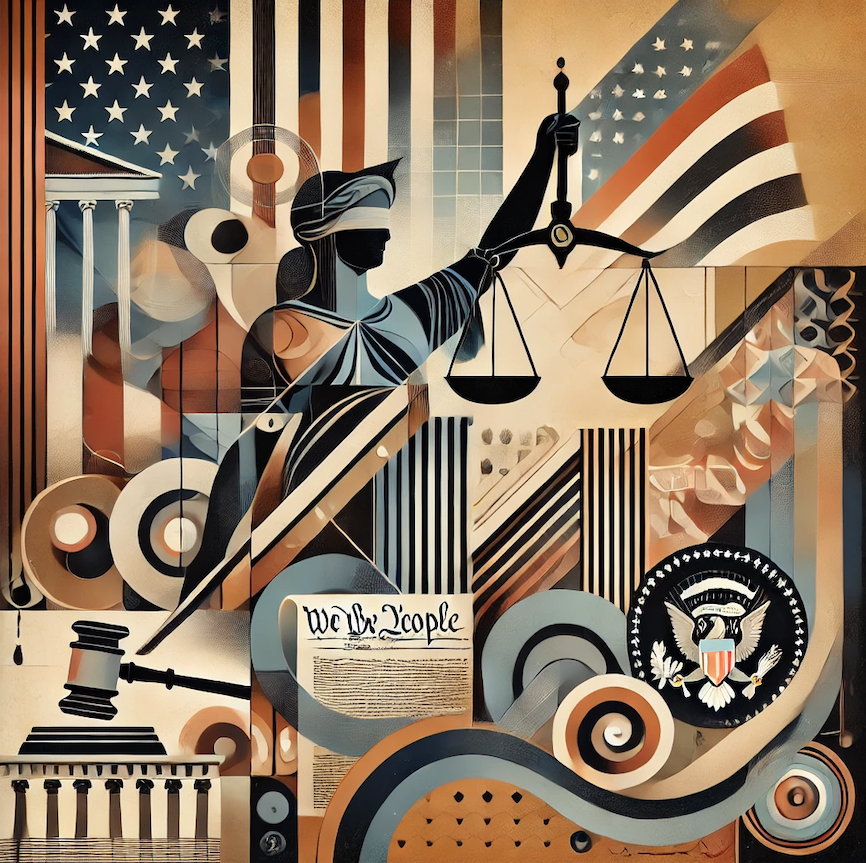Constitutional Scholar: Trump v. U.S. Decision Similar to ‘Enabling Act’ That Led to Nazi Dictatorship

The United States is grappling with Trump v. United States, a contentious Supreme Court decision, that could potentially grant future presidents unchecked powers. This alarming development has sparked fears of an autocratic shift, echoing historical precedents that led to dictatorship, according to a recent report by DER SPIEGEL.
Echoes of the Past
Laurence Tribe, an esteemed professor at Harvard Law School, likened the Supreme Court’s decision to the infamous Enabling Act of 1933 in Germany, which effectively dismantled the Weimar Republic‘s constitution. While the U.S. Constitution remains intact, the ruling significantly undermines the checks and balances that have traditionally restrained presidential power. Tribe emphasized that the decision erodes the mechanisms for holding presidents accountable for their actions, even those that might constitute criminal conduct.
Erosion of Impeachment Efficacy
The impeachment process, once a robust tool for addressing presidential misconduct, has been rendered ineffectual. Tribe pointed out the failures of recent impeachment efforts, notably against former President Donald Trump, who faced charges for attempting to overturn the election results. The Supreme Court’s decision now grants absolute immunity to presidents, even if they abuse their power for personal or political gain, thus nullifying the deterrent effect of potential criminal prosecution.
The Influence of the Supreme Court’s Composition
Chief Justice John Roberts, a former student of Tribe, has surprised many with his increasingly radical decisions. The appointment of conservative justices Neil Gorsuch, Brett Kavanaugh, and Amy Coney Barrett has further shifted the Court’s dynamics. Tribe expressed disappointment that Roberts, once seen as a moderate, has adopted a more extreme stance, influenced by these additions to the bench.

The “Tyranny of the Minority”
Tribe’s colleagues, Steven Levitsky and Daniel Ziblatt, have critiqued the Supreme Court’s current makeup as unrepresentative of the American electorate. Despite the Republican Party winning the popular vote only once in the past three decades, six of the nine justices were appointed by Republican presidents. This disparity has led to concerns about a “tyranny of the minority,” where a small, privileged group wields disproportionate influence over national policies.
Comparative Perspectives on Presidential Power
Unlike many European nations, where parliamentary systems impose significant constraints on executive power, the U.S. president enjoys considerable autonomy, particularly in defense and foreign affairs. The recent ruling exacerbates this imbalance by allowing the president to act without consequence, even in matters that would be criminal for others.
Implications for Future Presidencies
The ruling’s timing, with Donald Trump potentially seeking another term, heightens the anxiety surrounding its implications. Tribe warned that the decision sets a dangerous precedent, one that future presidents, regardless of party, could exploit. The fear is not just about Trump but about any future leader who might seek to abuse this newfound power.
The Path Forward: Constitutional Crisis or Reform?
Tribe believes that the United States is already in a constitutional crisis, driven by deep societal divisions and mistrust in institutions. The upcoming election will be pivotal in determining whether the country can navigate this crisis or fall further into authoritarianism. As America stands at a crossroads, the need for vigilant defense of democratic principles has never been more urgent.
Reflection on Laurence Tribe’s Contributions
Laurence Tribe’s distinguished career and his insights into constitutional law provide a sobering analysis of the current state of American democracy. Born in Shanghai to Jewish parents, Tribe’s journey to becoming a preeminent legal scholar is a testament to his commitment to justice and the rule of law. His perspectives, shaped by decades of teaching and public service, underscore the gravity of the Supreme Court’s ruling and its potential to reshape the American political landscape.

